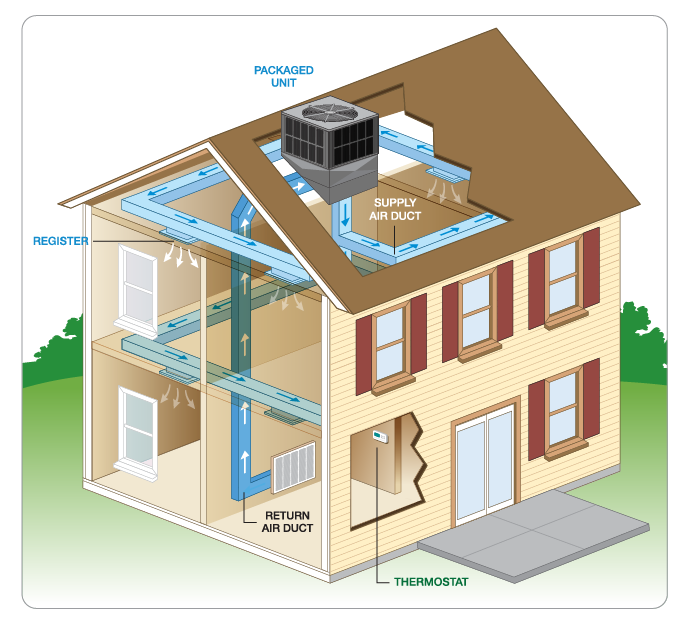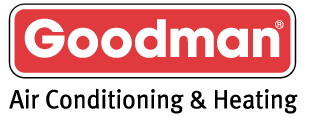How a Packaged System Works

Types of Packaged Units
Packaged Air Conditioners : The compressor, coils, air handler are all housed in a single-boxed cabinet. The packaged air conditioner can also provide limited warmth by using an electrical strip heating.
- Packaged Air Conditioners : The compressor, coils, air handler are all housed in a single-boxed cabinet. The packaged air conditioner can also provide limited warmth by using an electrical strip heating.
- Packaged Heat Pumps: A packaged heat pump uses heat pump technology to cool and heat your home.
- Package Gas-Electric: T The packaged gas-electric unit combines an air conditioner with gas-powered furnace performance.
- Package Dual-Fuel: The packaged dual fuel system contains a heat pump, capable of heating and cooling, as well as a gas furnace. This type of packaged system optimizes the heating source for the conditions.
How Each Packaged System Works
Operation depends on configuration, but packaged systems typically heat and cool your home the same way their stand-alone counterparts do. The ducting with a single cabinet system is slightly different. The duct work is attached to the system rather than connecting to various components in your home.
Packaged System Air Condition Component
- By using electricity as its power source, the unit’s internal components cycle the refrigerant.
- Warm air is pulled in by a fan and then passes over the cold evaporator coil, cooling it in the process.
- The cooled, dehumidified air is pushed through ducts to the various spaces inside your home.
Package System Heating Component
- Packaged Air Conditioners: In addition to the typical cooling feature associated with an air conditioner, packaged air conditioners are capable of producing limited heat with heat strip elements. With electricity as the fuel source, the heat strips are warmed, and the air is heated as it flows over the strips.The warm air then travels through ducting to increase the interior temperature of your home. This type of heating component is mainly used in warmer climates where heat is only used occasionally.
- Packaged Heat Pumps: The heat pump transfers heat by reversing the refrigeration cycle used by a typical air conditioner. Through a cycle of evaporation and condensation, the indoor coils are heated, and the air is pushed over the warm coils. From there, the warmed air is blown through the ductwork to increase the temperature in the interior rooms of your home.
- Packaged Gas-Electric: The heating component of a packaged gas-electric system is a gas furnace. The heating portion of the system uses natural gas or propane to combust inside the heat exchanger, creating heat. As cool air from the interior spaces is pulled in through the return ducting, the blower motor then blows the air over and through the hot heat exchanger, heating the air. The warm air is then circulated throughout the home through the ductwork.
- Packaged Dual-Fuel: Your dual-fuel packaged system has two heating options, a heat pump or a gas furnace. When installed and configured correctly, your dual fuel system can determine whether it’s more economical to heat your home using electricity or gas. When moderate heating is required, the heat pump automatically reverses from the air condition mode to provide warm air. When temperatures fall further, the system uses the gas furnace to provide reliable, consistent heat.
Benefits
- Space efficiency – Unlike split-system units, all components of a complete heating and cooling system are contained in one location, making packaged units ideal for situations in which indoor space is at a premium.
- Energy-efficient heating and cooling performance – All Goodman® brand packaged units offer 13 SEER or higher cooling performance. Our packaged gas/electric units offer 80% AFUE heating performance, as well.

More articles at this LINK
HVAC Learning Center
From https://www.goodmanmfg.com/resources/heating-cooling-101/how-a-packaged-system-works
